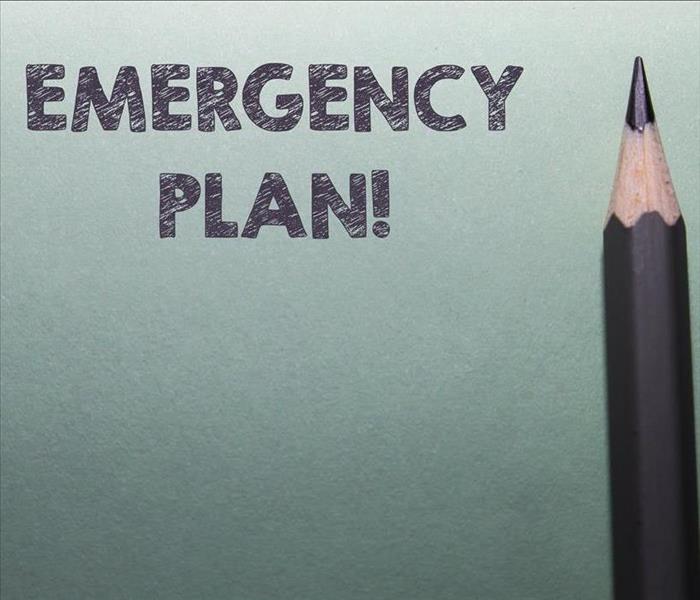How To Prepare Your Business for Hurricane Season
7/27/2020 (Permalink)
According to the Federal Emergency Management Agency (FEMA), “almost 40-60 percent of small businesses never reopen their doors following a disaster.” Knowing the necessary steps to prepare your business for a natural disaster and staying up to date with the most recent safety measures is essential for any successful company.
Unlike other natural disasters, there is usually time to prepare before a hurricane or tropical storm reaches land. Having a plan set for when disaster strikes can ensure your business will remain prosperous.
1. Create an comprehensive emergency plan before the storm
The most crucial time to prepare for a natural disaster is before it is an imminent threat. By thinking through hard decisions that need to be made in case of a storm before it actually happens, you will be able to use clear thinking and judgment to decide.
The Occupational Safety and Health Administration (OSHA) requires business to have an Emergency Action Plan (EAP) and this plan should cover any precautions related to hurricanes and tropical storms. This hurricane survival plan should be updated annually to ensure its accuracy. As recommended by the OSHA, this plan should include:
- Under what weather conditions will the plan be activated, like certain time intervals (when the storm is 96 hours from impact, 72 hours, 48 hours, 36 hours, 24 hours, etc) that will require certain actions.
- The chain of command
- Detailed evacuation procedures, including routes and exits
- Procedures for accounting for personnel, customers and visitors
- Equipment for on-site personnel
- Emergency functions and the employees that will perform them (like who is allowed to check on the worksite after the storm)
2. Determine individual crisis management roles and prepare employees.
Knowing which employees are designed to each task will avoid any confusion of responsibilities and ensure things run smoothly. It is important to identify which employees are essential for the function of the business and which ones will be requires to be on site. Every employee should be well aware of the plan and understand their expectations, so no one is taken by surprise.
3. Coordinate with local partners
Being aware of the plans of other local businesses, as well as the local police department, fire department, hospitals, and utilities providers can be very beneficial. While some business partners may also be preparing for the storm as well, some suppliers and shippers may be unaware of the threat and should be updated on how it will indirectly affect them.
4. Review the plan every year
Certain changes to your business or community may affect your hurricane response and it is important that these be taken into account. Your business should not neglect your emergency action plan until emergency strikes - it is vital to be constantly updating and reviewing the response.
While it may be impossible to avoid a hurricane, following these steps can mitigate any damage and ensure a successful future.





 24/7 Emergency Service
24/7 Emergency Service